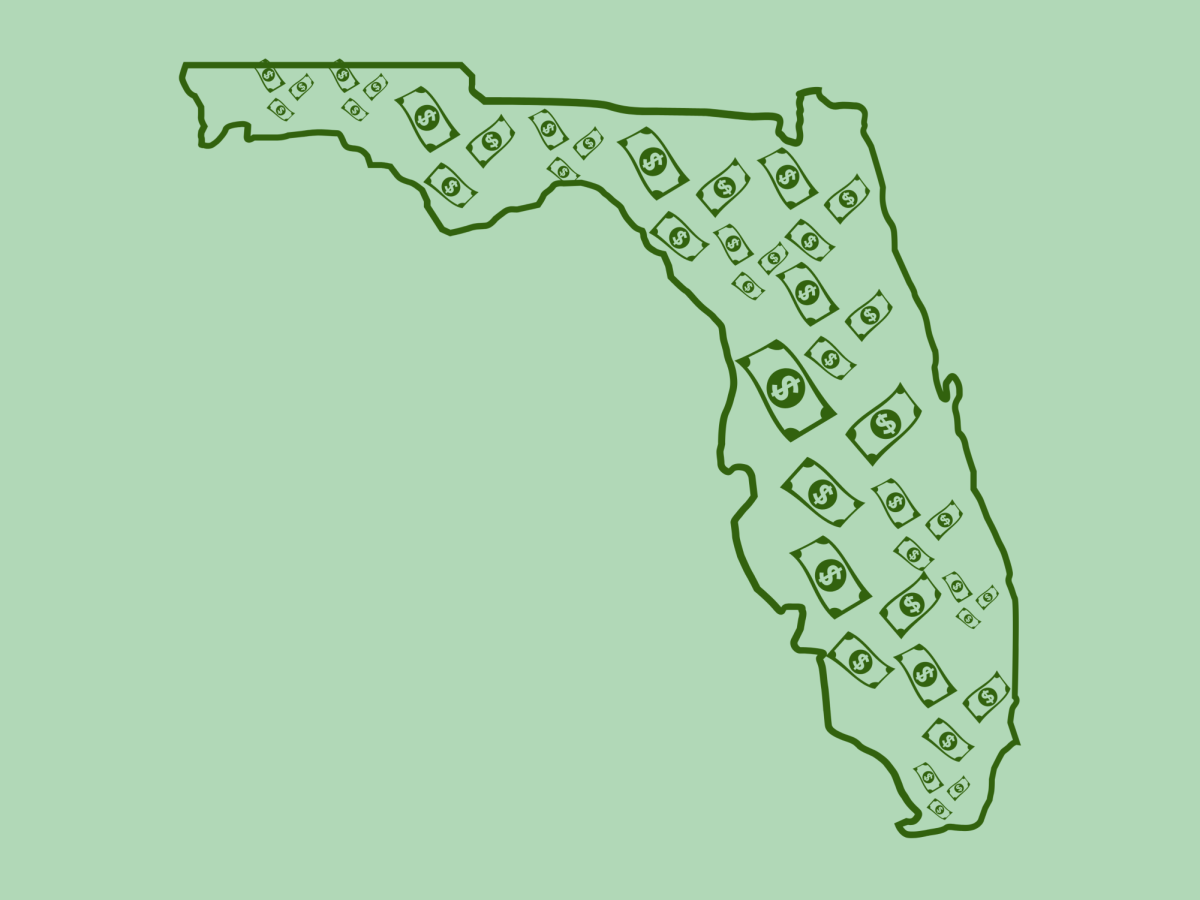In Scott McRobert’s, Ph.D., 9 a.m. environmental science lecture, phones and laptops are placed inside of book bags, and the only things on students’ desks are pens, notebooks and, sometimes, a coffee. Dr. McRobert loves to talk about the turtles in his lab as he reads to us from his slides. At least once a week in this class that sparks unflinching climate anxiety and shows images of destroyed ecosystems, he reminds us this is all happening because of money.
Recently, Florida was ravished by Hurricanes Helene and Milton, two storms whose effects were intensified by climate change. The extremity of these storms stands in stark contrast to action taken by Florida Governor Ron DeSantis in May, when he signed a bill that not only dismisses the effects of climate change but actively enhances them.
The bill prioritizes the use of natural gas and supports nonrenewable energy sources, which will only worsen conditions in a state already ravaged by intense heat, storms and flooding. It seems almost paradoxical that DeSantis would sign bills that could contribute to worsening climate conditions, especially since 90% of Floridians believe in climate change. If sea levels continue to rise, it is projected that by 2050, over 14,620 homes in Miami-Dade County alone will be at risk and the county will suffer over $8.7 million in property damages.
It seems like an obvious pun to make, but “going green” means a much different thing to politicians backed by oil tycoons than it does to people who are actively being affected by climate change. This was especially true when DeSantis was signing bills that actually protected Florida’s coast before launching his 2024 presidential campaign. On either side of the political spectrum, politicians will do anything they can to either stay in power or gain more, and this almost always depends upon who is investing money in them. In this next election cycle, let’s remember that our public servants are who we trust to protect us from danger and threats, and there’s no greater threat to humanity than climate change.














































